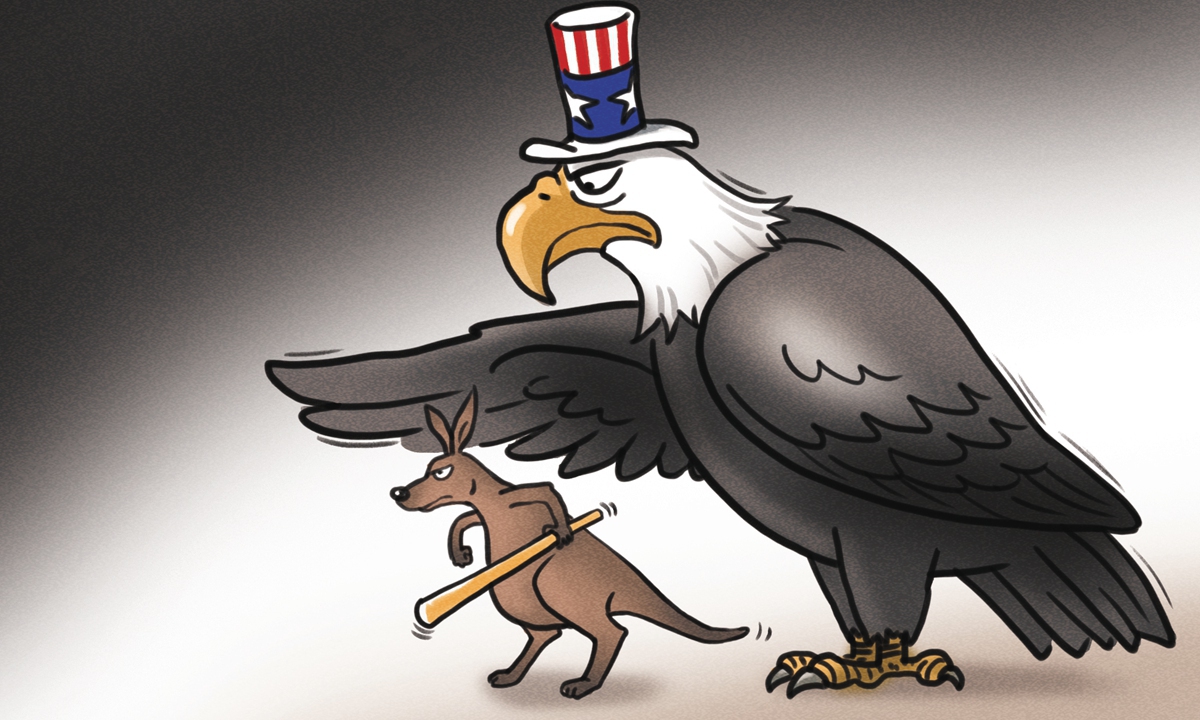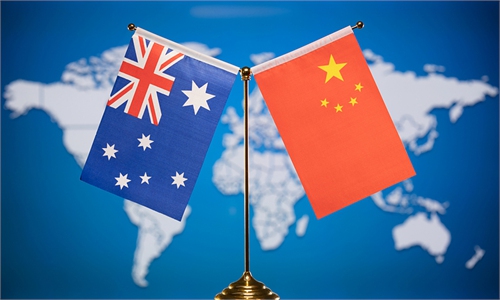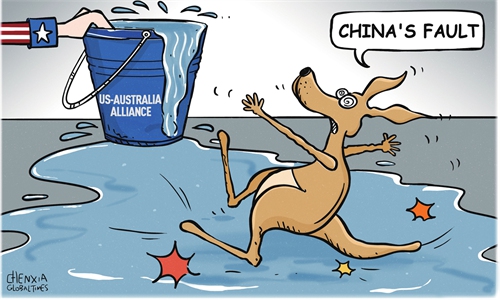
Australia US Illustration: Liu Rui/GT
Misinformation, false information, prejudice and the dirty politics of the retention of power has caused a thick and low hanging fog through which Australia is now trying to navigate a path to China.Chinese State Councilor and Foreign Minister Wang Yi, when meeting with Australian Foreign Minister Penny Wong on July 8 in Bali, Indonesia, called on Australia to be a partner rather than an opponent, to seek common ground, reserve differences, build positive public opinion and not targeting nor being controlled by a third party (clearly a reference to criticism of China and the influence of the United States over Australian foreign and defence policy).
The Australian government needs to push back against the biased and at times hysterical Murdoch Press.
The new Prime Minister, Anthony Albanese, has been focused on domestic politics for much of his political life. He has inherited and chosen to retain public servants shaped and politicized by 20 years of LNP governments, including Andrew Shearer, head of the Office of National Intelligence. Shearer was the national security adviser to previous LNP Prime Ministers, John Howard and Tony Abbott, and was Scott Morrison's influential adviser on China. He is a foreign policy hawk. He is now a key adviser to Anthony Albanese. He supports the Quad and he supports and is a likely promotor of AUKUS. He is seen as extremely influential in policy debates relating to China and the US.
Compared to Wong and Albanese, Richard Marles, the defence minister, appear to be reading off different briefing notes. He gives every appearance of just not getting it. He is an embarrassment. He warned of a "military build-up at a rate unseen since WWII" in Washington on 11 July in Washington. Who is briefing him?
Marles has yet to assert his leadership of the Defence and Security bureaucracy. He needs to make clear the nonsense of carping about the viability of our trade routes while undermining Australia's trade relationship with China. He needs to undertake a review of the "policy", pushed by the US, of the "right of innocent passage" in the South China Sea.
There are no policy differences relating to China within the Australian cabinet and government, however the Shearer approach to dealing with China is different to what is evolving from within the department of Foreign Affairs.
The ASPI continues to play a less than constructive role in the reset of relations with the former director, Peter Jennings, attempting to rattle the sabre over arms sales, including nuclear submarines. The ASPI is a strong supporter of AUKUS. How influential ASPI will be in the new government remains to be seen.
Australian public support for the alliance with the US remains strong, but how much support there is for AUKUS is untested. Details relating to the understanding have not been released. They remain secret. There has been some media speculation but no details have been made public. AUKUS and all matters associated with it need to be debated in the Australian parliament. Secrecy in one state leads to secrecy in another.
Clearly what needs to occur now is a continuance of calm and directed diplomacy. Wong has said the meeting with Foreign Minister, Wang Yi, is a first step in stabilizing the relationship. That is an important acknowledgement and should be a precursor toward formal high-level discussions.
In addition to Australia adjusting its focus on China, it must weigh carefully its words and undertakings emanating from both China and the United States, particularly in relation to Taiwan and the South China Sea. It is in Australia's interest to see considered responses from both.
Normal trade, tourism, study and research should resume as soon as possible between China and Australia.
The author is a retired Australian Diplomat and political commentator. opinion@globaltimes.com.cn


